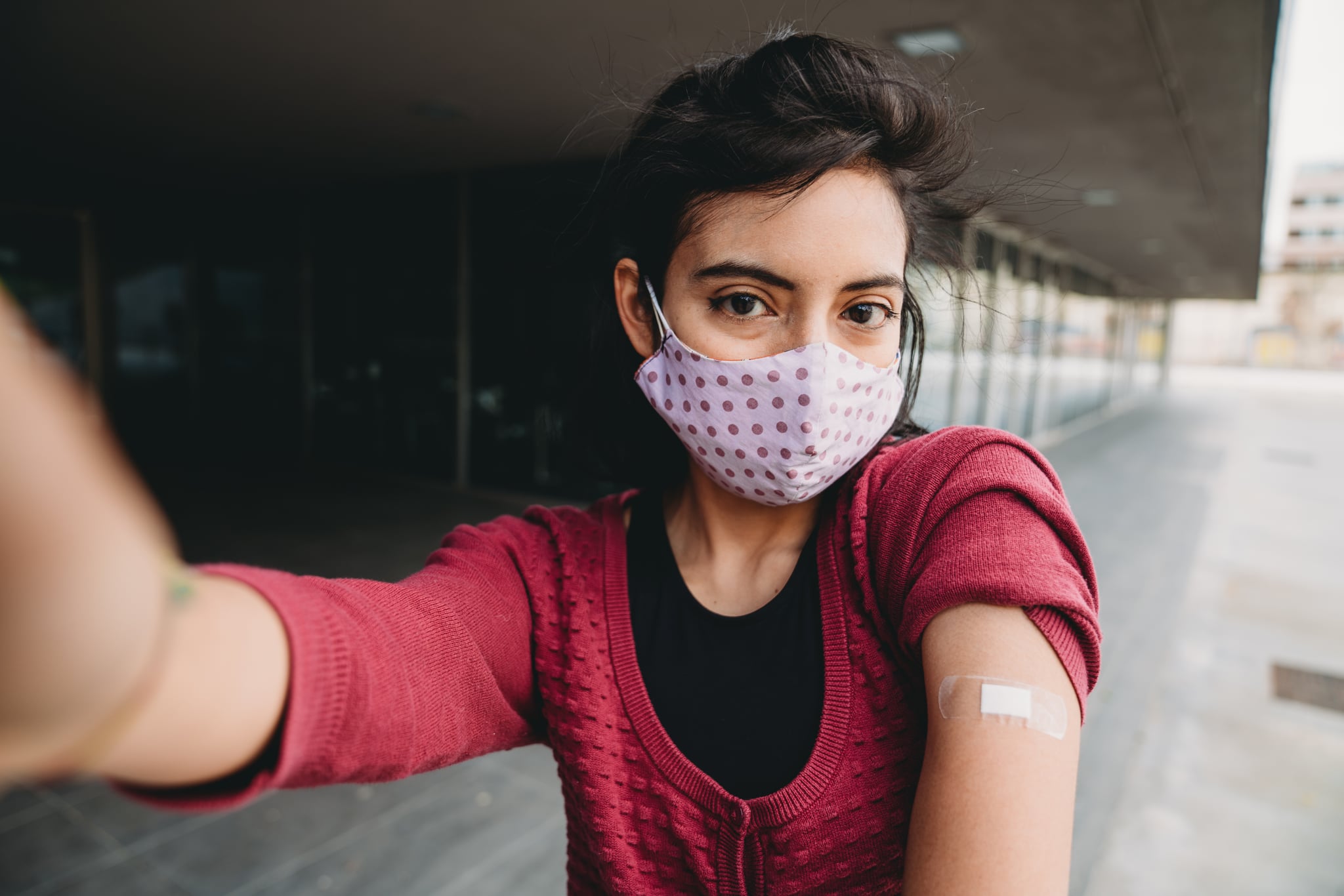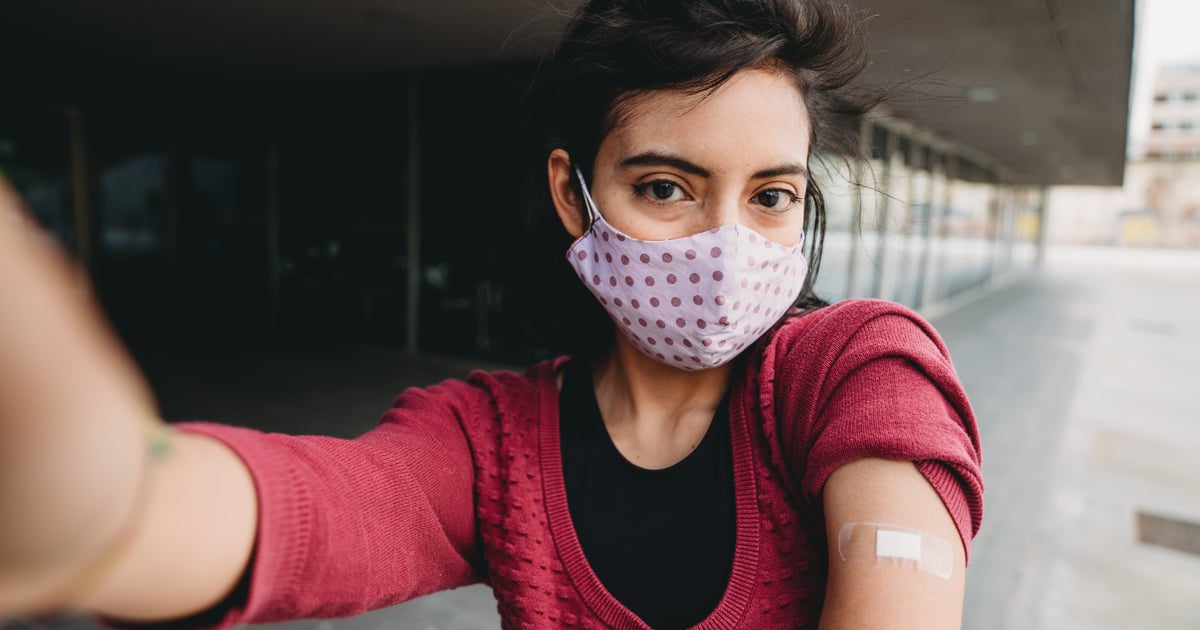
Image Source: Getty / FilippoBacci
In today’s edition of misinformation circling about the COVID-19 vaccine: magnetic ingredients. People are posting videos on social media claiming that ingredients in the COVID-19 vaccines are making magnets stick to the arm where they received the vaccine; some even say an implanted microchip is to blame. TikTok recently took down one of these viral videos that allegedly demonstrated this magnetic attraction, and Instagram blurred a similar video, labeling it false information. You may have seen compilations of these videos going around. But no ingredients used in the COVID-19 vaccines are actually magnetic in nature.
Céline Gounder, MD, ScM, infectious disease specialist and epidemiologist at NYU Langone Health and Bellevue Hospital and host of the Epidemic podcast, pointed to the ingredient lists for the two mRNA vaccines, Pfizer-BioNTech and Moderna, and the adenovirus-based Johnson & Johnson COVID vaccine. Iron is one of the most common metals used in magnetic materials, but “you will see no mention of iron, ferrous, or ferric, which would indicate the presence of iron,” Dr. Gounder explained to POPSUGAR in an email.
Dr. Gounder continued, “That said, many multivitamins contain iron, and you don’t see people becoming magnetized or having magnets sticking to them after taking that vitamin.” Point made! Tracy, a former college professor using the TikTok account @scitimewithtracy, who has a PhD in microbiology and immunology and who did not wish to disclose her last name, shared the same sentiments, calling it “nonsense.”
Numerous other experts agree. Edward Hutchinson, PhD, a Centre For Virus Research lecturer at Scotland’s University of Glasgow, and Alexander Edwards, PhD, an associate professor in biomedical technology at England’s University of Reading, both told Newsweek that the coronavirus vaccine was not produced using magnetic materials. Dr. Edwards further told the outlet that “most of what is injected is extremely pure water, plus some simple salts to make the injection less painful, and an absolutely tiny amount of vaccine.” The biological material that makes up those vaccine ingredients, he said, includes “protein or sometimes RNA or similar nucleic acid, and sometimes includes some lipids,” and they resemble the “biological building blocks” found in the human body. Both experts spoke to Snopes as well, which also investigated these claims.
Pfizer itself even chimed in, telling Newsweek, “The vaccine does not cause a magnetic response when it’s injected. Pfizer is aware of the rise in anti-vax sentiment and misinformation, especially on social media platforms, with some people affected more than others during the pandemic.”
One scientist tweeted, “COVID vaccines contain neither metal nor microchips. And unless you’re a member of the X-men, they definitely do not make magnets stick to you.” Tracy also told POPSUGAR via email, “Even if the government could make a tracking chip that is small enough to fit into a 25 gauge needle (0.5 mm or 0.02 in (1/50 of an inch)), it would never be a strong enough magnet to hold up a fridge magnet.”
While there are side effects associated with the COVID-19 vaccine that can develop within a day or so — injection site reactions, headache, fatigue, fever, chills, muscle aches, swollen lymph nodes — neither the CDC nor the World Health Organization list a magnetic arm as one of them. Can you get a rash on your arm even days after your vaccine? Yes — Sofija Volertas, MD, an assistant professor in UNC’s division of rheumatology, allergy, and immunology, suggested a warm compress or some antihistamines for that. Magnetic arm? All credible sources point toward a big “no.”
So, we’ll leave you with the below video from TikTok user and scientist Dr. Noc, who is researching COVID-19.
@dr.noc Sometimes I can’t tell if it’s satire #covid19 #covidvaccine #drnoc
POPSUGAR aims to give you the most accurate and up-to-date information about the coronavirus, but details and recommendations about this pandemic may have changed since publication. For the latest information on COVID-19, please check out resources from the WHO, the CDC, and local public health departments.
